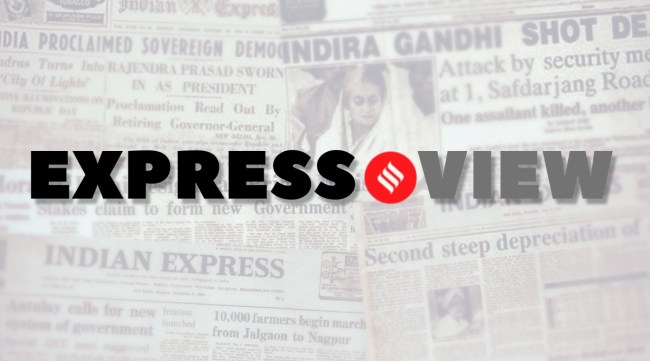Opinion Who needs allies? Not the BJP, it seems
Express View: Its confidence in numbers game makes it unwilling to negotiate and reconcile political differences
 The art of negotiation and coalition-making is necessary and valuable in a society and polity of India's diversities.
The art of negotiation and coalition-making is necessary and valuable in a society and polity of India's diversities. At one level, the AIADMK’s exit from the BJP-led NDA points to local factors specific to the coalition and its setting in Tamil Nadu. The alliance between a Dravidian outfit and a party with Hindi-Hindutva moorings was always uneasily poised. Previous electoral outings, in 2019 at the Centre and in the state in 2021, had not delivered for either player, and the Modi-BJP’s recent assertiveness under an aggressive state unit chief further strained relations. For the AIADMK, the BJP’s alleged provocations vis a vis the figures of CN Annadurai and J Jayalalithaa — it has alleged a “planned, deliberate and premeditated effort to misrepresent those considered gods of our movement” — became a flashpoint, even before Udhayanidhi Stalin’s tirade against Sanatan Dharma handed the BJP an opportunity to sharpen an ideological faultline on which it hopes to trip up the Opposition’s INDIA alliance in other parts of the country. But the break-up of the AIADMK and BJP also points to a larger trend in the latter’s politics, and not just in Tamil Nadu. Quite simply, the BJP, which in its initial years actively sought the help of allies to grow and spread, attain power and keep it, is now, under Narendra Modi, who has led the party to two decisive majorities at the Centre, gambling on going it alone.
This has been the writing on the BJP wall, especially since 2019, after which it has lost three major and long-standing allies – Shiv Sena in Maharashtra, Shiromani Akali Dal in Punjab and the JD(U) in Bihar. Again, the reasons may have been different for each estrangement, but what is becoming clear is the BJP’s new-found unwillingness or inability or both to negotiate a way out of the impasse brought on by the ally’s real or imagined grievance. In the Shiv Sena’s case, the BJP went further. It was then seen to engineer a split in its erstwhile partner – it now shares power in the state with the new Eknath Shinde-led Sena that came into being. In recent days, the BJP has acquired a new ally – the JD(S) has joined the NDA in Karnataka. But the reputation it has acquired of being a domineering and predatory partner remains undented. There are indications, also, that the party, which under the leadership of Atal Bihari Vajpayee made friends and struck alliances, likely and unlikely, and spoke eloquently of “coalition dharma”, if only to make a virtue of a necessity, will now only join hands with smaller players which are not likely to be very demanding and those it can dominate easily.
The art of negotiation and coalition-making is necessary and valuable in a society and polity of India’s diversities. An alliance between parties is not just about electoral math, it is also a statement of readiness to give and take and listen, of softer lines and more flexibility. The BJP’s increasingly visible tendency to go it alone, its winner-takes-all approach, may or may not fetch it electoral dividends. But it certainly signals a loss in the party’s political repertoire that will be missed.



